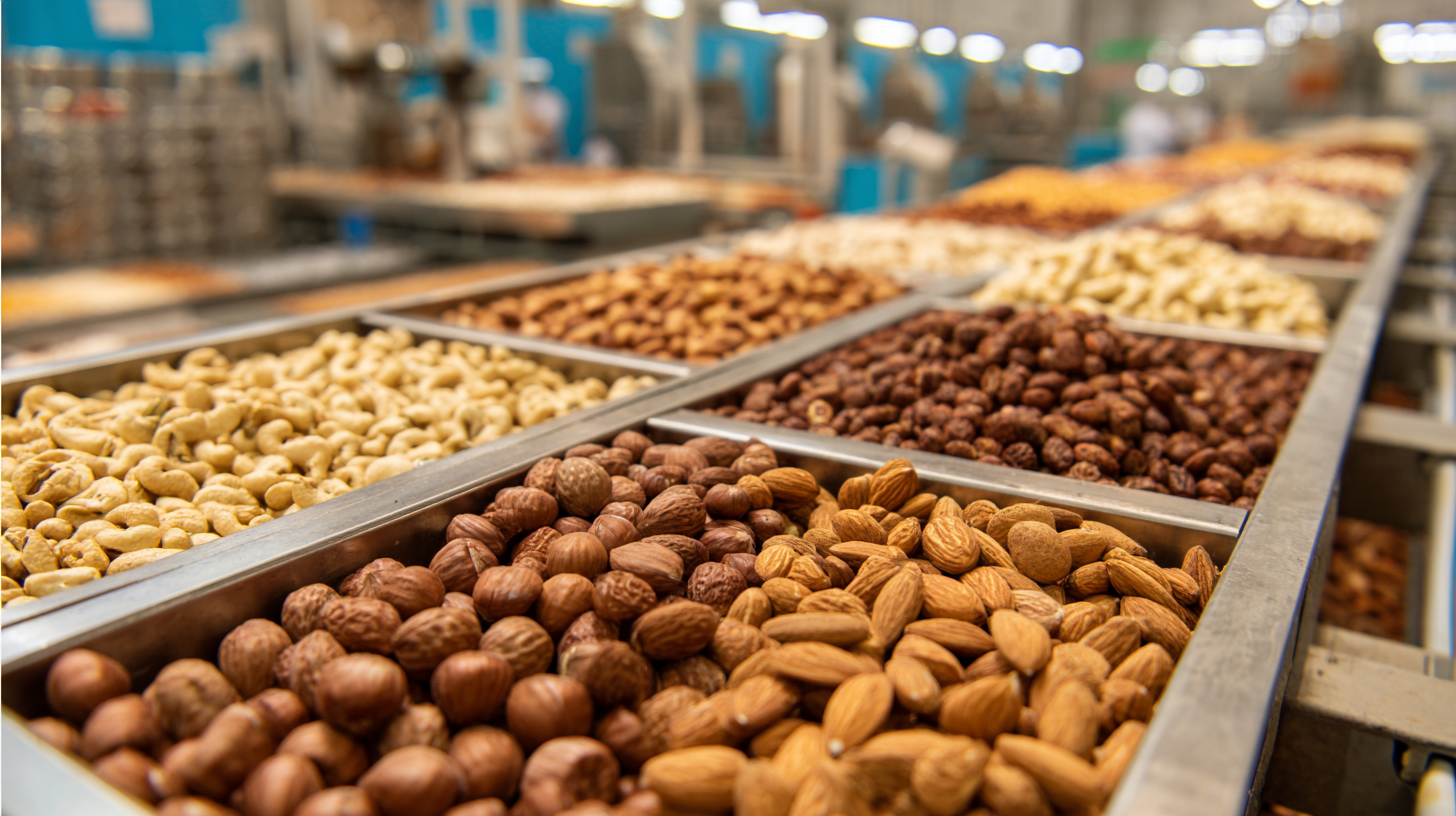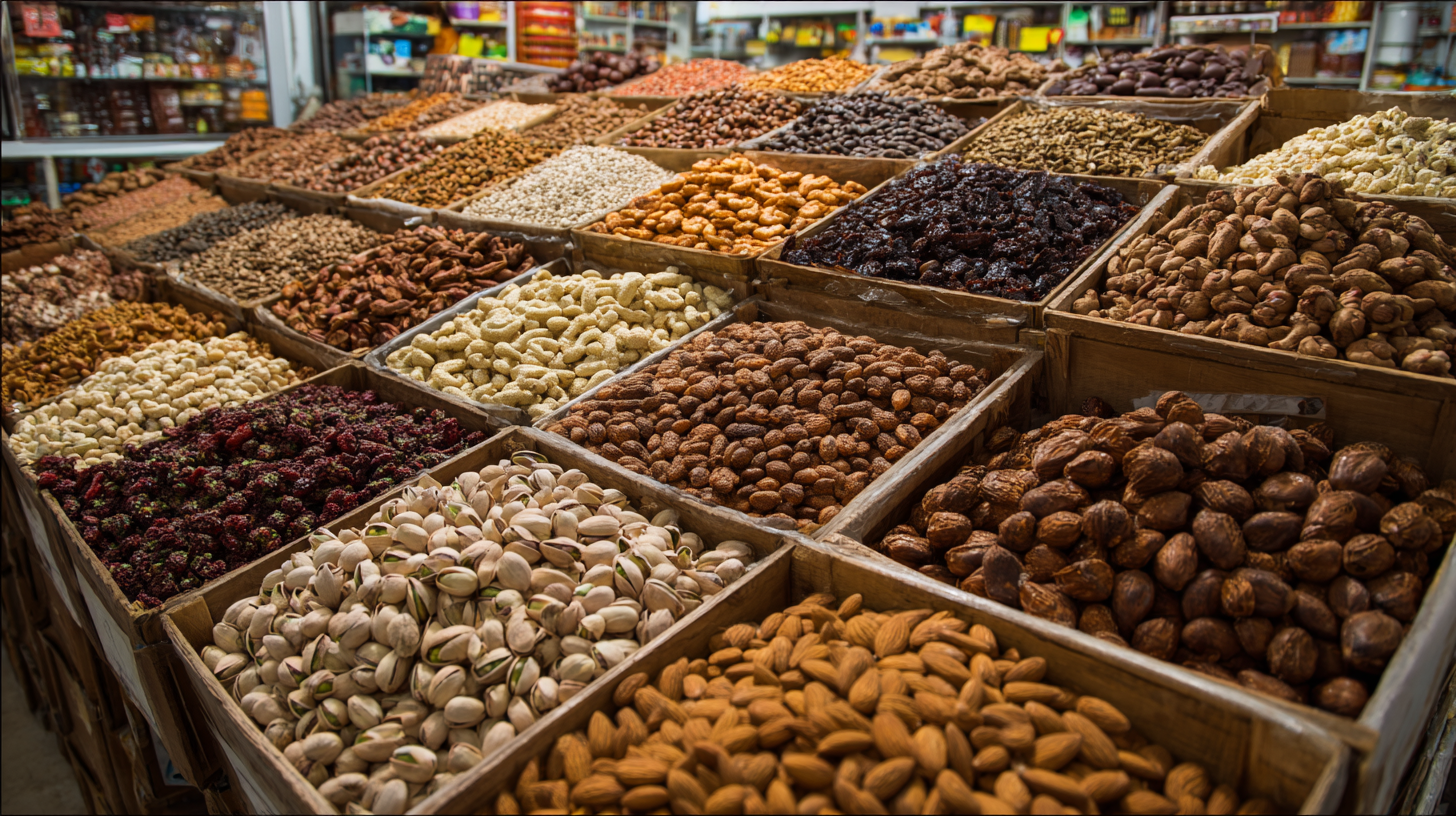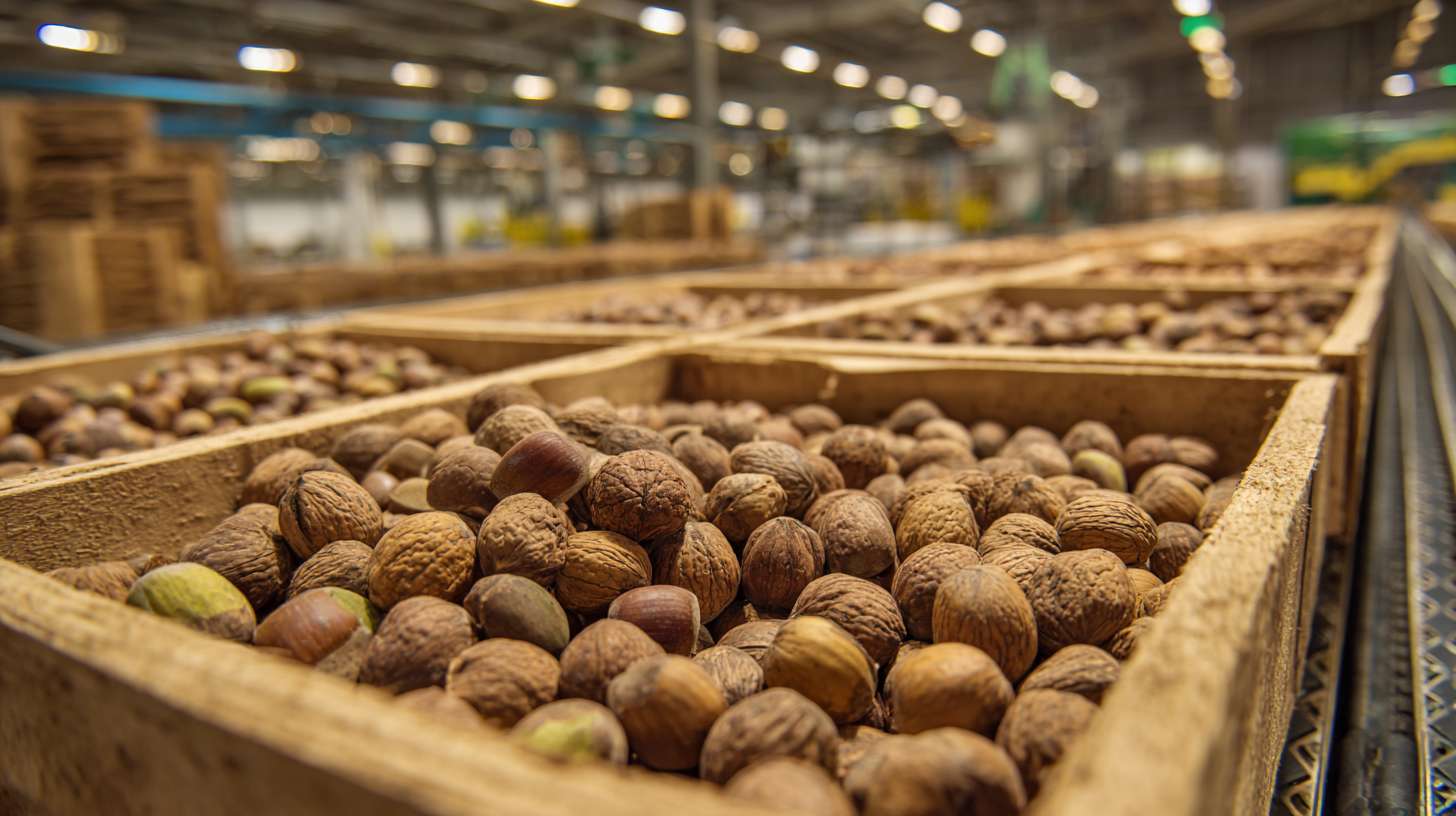Inquiry
Form loading...
In recent years, China's quality factories have emerged as key players in the global market for Special Nuts, with the industry witnessing remarkable growth driven by rising consumer demand for premium snack options. According to a report by the International Nut and Dried Fruit Council, the global nuts market is projected to reach a value of over $100 billion by 2025, with Special Nuts playing a critical role in this expansion. These unique and nutrient-rich products, ranging from flavored almonds to gourmet pistachios, are becoming increasingly popular among health-conscious consumers and gourmet food enthusiasts alike.

However, challenges such as sourcing high-quality raw materials and ensuring consistent production standards persist in the industry. As we delve into the complexities surrounding the Special Nuts market, we will explore how Chinese manufacturers are addressing these issues while delivering exceptional products to satisfy the ever-growing global appetite.
The global demand for quality nuts has seen a significant rise, driven by increasing health awareness and culinary trends. In this landscape, China emerges as a pivotal player, offering a diverse range of exceptional special nuts that meet the rigorous standards sought by international markets. Quality is paramount in the nut industry, not only for consumer satisfaction but also for establishing long-term partnerships and brand loyalty. Chinese factories prioritize stringent quality control processes, from the selection of premium raw materials to advanced processing techniques, ensuring that their products stand out in both taste and nutritional value.
Furthermore, understanding the importance of quality nuts extends beyond mere consumption; it influences agricultural practices and economic growth. High-quality nuts contribute to better yields and sustainable farming practices, benefiting local farmers and the broader economy. As the global market continues to evolve, consumers are becoming increasingly discerning, favoring products that not only meet their dietary needs but also support ethical and sustainable practices. By focusing on quality, Chinese factories are not just delivering products; they are setting new standards for excellence in the global nut industry, marking their presence as leaders in this competitive field.
China's nut industry has gained global recognition, particularly for its high-quality special nuts. Reliable suppliers in this sector possess several key characteristics that set them apart. A comprehensive report by the Chinese National Nut Association revealed that the country is the world's largest producer of nuts, accounting for approximately 40% of the global market share. This impressive statistic underscores the importance of quality control and consistent supply from Chinese manufacturers.

One vital characteristic of dependable suppliers is their adherence to stringent food safety standards. Many top-tier Chinese nut factories have obtained international certifications, such as ISO 22000 and HACCP, ensuring their products meet the highest safety and quality benchmarks. Furthermore, these suppliers invest in advanced technology and quality testing equipment, which boosts efficiency and minimizes contamination risks. According to a market research report by Mordor Intelligence, the demand for healthy snacks, including special nuts, is expected to grow at a CAGR of 5.4% through 2027, emphasizing the necessity for suppliers to maintain exceptional quality to cater to evolving consumer preferences.
In addition, reliable suppliers often prioritize sustainable practices in their sourcing and production processes. A study by the Global Agriculture Organization highlighted that environmentally responsible production not only enhances brand reputation but also aligns with the increasing consumer demand for sustainably-sourced products. This conscientious approach, combined with robust quality assurance mechanisms, positions Chinese nut suppliers as leaders in the global market, ensuring they deliver exceptional products that meet international standards.
When sourcing special nuts from China, assessing potential suppliers is crucial for ensuring quality and reliability. Start by conducting a thorough evaluation of the factory’s certifications, such as ISO 22000 for food safety management and HACCP (Hazard Analysis Critical Control Point) systems. According to a report by the International Nut and Dried Fruit Council, these certifications not only enhance supplier credibility but also indicate adherence to international food safety standards, which is vital in the competitive global nut market valued at over $28 billion in 2022.
In addition to certifications, visiting the supplier’s facility can provide invaluable insights into their operational capabilities and quality control processes. A study published by MarketsandMarkets highlights that buyers who engage in factory audits can reduce supply chain risks by up to 30%. When assessing production capacity, it’s essential to inquire about their sourcing practices for raw materials and any partnerships with local farmers, as sustainable sourcing significantly impacts both quality and environmental responsibility. Ensuring that suppliers implement rigorous quality checks at every manufacturing stage can safeguard the integrity of your products in the global marketplace.
 In the competitive landscape of global nut markets, establishing strong relationships with suppliers is essential for sourcing exceptional quality products. Chinese quality factories excel not only in production capabilities but also in forging partnerships that enhance the supply chain. By prioritizing transparency and open communication, businesses can create an environment of trust, which is critical for addressing issues promptly and collaboratively. Regular meetings and updates with suppliers help in aligning expectations, ensuring that everyone is on the same page regarding production timelines and quality standards.
In the competitive landscape of global nut markets, establishing strong relationships with suppliers is essential for sourcing exceptional quality products. Chinese quality factories excel not only in production capabilities but also in forging partnerships that enhance the supply chain. By prioritizing transparency and open communication, businesses can create an environment of trust, which is critical for addressing issues promptly and collaboratively. Regular meetings and updates with suppliers help in aligning expectations, ensuring that everyone is on the same page regarding production timelines and quality standards.
Moreover, adopting best practices in relationship management can significantly improve brand reputation and customer satisfaction. Investing time in understanding supplier challenges and capabilities fosters mutual respect and loyalty. Joint initiatives, such as quality assurance programs or training sessions, can enhance supplier performance and drive continuous improvement. By treating suppliers as valued partners rather than mere transactional entities, companies can cultivate a dynamic that encourages innovation and responsiveness, ultimately leading to a more resilient supply chain that delivers the finest nuts to global markets.
As the global demand for high-quality nuts escalates, China's factories have positioned themselves as key players in the international market. However, navigating the complex landscape of trade regulations and quality standards is crucial for ensuring successful exportation. According to a report by the Food and Agriculture Organization, the global nut market is expected to reach $80 billion by 2025, driven by rising health consciousness and growing consumer preferences for nutritious snacks. This presents both an opportunity and a challenge for Chinese producers, who must align their output with strict international standards.
Exporting nuts requires compliance with a myriad of regulations, including stringent quality control measures set by the FDA and EU food safety standards. For instance, the National Nutritional Food Association reported that 68% of consumers prioritize safety and quality when selecting nut products. Therefore, manufacturers in China are increasingly investing in state-of-the-art processing technologies and rigorous testing protocols to meet these standards. Implementing comprehensive certification processes not only facilitates smoother trade but also enhances the credibility of Chinese nuts in global markets, ultimately contributing to increased export volumes and business growth.
